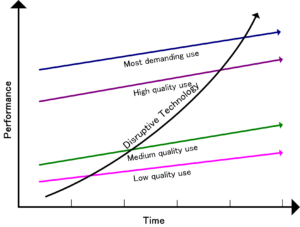 This past Sunday night, many Southerners huddled around their TVs to watch the Women’s World Cup, or at least those that were not shooting off their remaining fireworks and ammo from the night prior. With this win, the U.S. Women’s Team has become the team with the most wins in Women’s World Cup history. While a team is climbing to the top there is lots of speculation, but when the victory is claimed, everyone wants to know how they did it. Aside from hard work, LOTS of practice, and some killer instincts, the case could be made for the fact that the United States is the only country in the Women’s World Cup that provides IX funding, making it equally possible for young, female athletes to pursue their passions just like their male colleagues. As a shock to no one, I am a big fan of this theory and of IX funding. While I am no athlete, I do believe that planning ahead tends to make short work of competition. Turns out, I am not the only one that feels this way.
This past Sunday night, many Southerners huddled around their TVs to watch the Women’s World Cup, or at least those that were not shooting off their remaining fireworks and ammo from the night prior. With this win, the U.S. Women’s Team has become the team with the most wins in Women’s World Cup history. While a team is climbing to the top there is lots of speculation, but when the victory is claimed, everyone wants to know how they did it. Aside from hard work, LOTS of practice, and some killer instincts, the case could be made for the fact that the United States is the only country in the Women’s World Cup that provides IX funding, making it equally possible for young, female athletes to pursue their passions just like their male colleagues. As a shock to no one, I am a big fan of this theory and of IX funding. While I am no athlete, I do believe that planning ahead tends to make short work of competition. Turns out, I am not the only one that feels this way.
Early last month, Paul Bowers, Chairman of the Georgia Chamber of Commerce spoke with leaders at Berry College about the necessity of a good education. You see, Mr. Bowers needs Georgians to have a good education so that when they apply to his company, they can actually meet the fundamental requirements of the job. This isn’t rocket science to anyone. Most people believe that with a better education, you can rise to the next level with a combination of hard work and integrity. Yet Mr. Bowers’ statement on education here in the state should not be brushed to the side. Frankly, it could be read another way: either Georgia needs to get their education act together, or our economy is going to suffer. This is not the first time the Chamber has tried to get lawmakers’ attention, either. Click here for the link to the “Economics of Education” report from the Chamber in 2012, or skip to the images below. Continue reading “Winning Requires Planning Ahead”



 For those keeping score, this is what our morning looked like:
For those keeping score, this is what our morning looked like:

